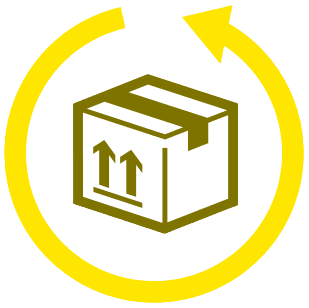
Tips for New Parents
How do I get sleep with a newborn?
Ask any new parent, and they will tell you: during that first month, you will be exhausted, but you will also be amazed at the energy you find to care for your little one. A few uninterrupted hours of sleep will feel like absolute heaven. While this stage won’t—and shouldn’t—last forever, you’ll have what you need to navigate those middle-of-the-night feedings and wakings.
Here are some tips to help you get some sleep after welcoming your new baby:
- Practice Good Sleep Hygiene: Create a comfortable sleep environment in your bedroom and establish a bedtime routine for yourself.
- Take Shifts: If you have a partner or another loved one, consider dividing the nights in half so you can enjoy longer stretches of sleep.
- Ask for Help: Your loved ones want to support you! Whether it’s picking up a grocery order, folding laundry, or watching your baby while you take a nap, don’t hesitate to reach out for assistance.
- Let Go of “Shoulds”: If the pressure to do the dishes or fold laundry before bedtime is interfering with your sleep, give yourself permission to prioritize rest. This can be easier said than done, but remember: this phase is temporary. Prioritizing sleep is essential for your health and your ability to care for your baby.
- Learn About Baby Sleep: Research shows that attending parenting classes can improve the birth outcomes for babies whose mothers experience stress, anxiety, or depression. The same applies to baby sleep; a baby sleep class can enhance your newborn experience while helping you establish a healthy sleep foundation.
What can I expect in the 4th trimester?
From my heart to yours, I want to share some heartfelt advice for new parents about what to expect during the fourth trimester—the first three months with your newborn.
Let’s talk about some important aspects of the fourth trimester—the first three months with your newborn:
- Your Body: If you've just given birth, you might look about five months pregnant immediately afterward. That’s your uterus adjusting. It may surprise you, but it will shrink back down soon. Remember, it took nine months to grow that sweet baby, so it’s natural for your body to take time to recover and start feeling 'normal' again.
- Your Bond: You will love this baby more than you ever dreamed possible, but developing that bond can take time. It’s okay if it’s not all rainbows right away.
- Your Baby’s Temperament: Babies cry and can be fussy even when you're doing everything 'right.' This can leave you feeling like a failure, but repeat after me: You’re not a failure. For every fussy moment, there will be countless joyful ones. You’ll soon discover that your baby’s smile can brighten even the toughest days.
- Your Baby’s Nutrition: Breastfeeding and establishing a healthy nursing relationship can be challenging, yet incredibly rewarding. Don’t hesitate to ask for help, and remember, breastfeeding is just one way to nourish your baby. How your baby receives nutrition does not reflect your love!
- Your Baby’s Sleep: Your baby is not a clock and will likely never follow a perfect schedule.
- Your Relationship: Your marriage may look a bit different after your baby arrives, but there are steps you can take to help you and your partner thrive together.
- Your Mental Health: If you feel like you’re on an emotional rollercoaster, that’s completely normal! It takes 38-40 weeks for hormones to stabilize, and they can come crashing down within 6-8 weeks postpartum. These mood changes can happen to any parent welcoming a new baby into their lives, so remember—you’re not alone.
If you're struggling, I want you to know that I see you, and I’ve been there. It can and will get better, but please don’t hesitate to ask for help! This might look like talking to a therapist, taking walks outside, starting medication, or asking a friend to come over while you take a nap. At the end of the day, what babies need most is love from healthy parents.
Postpartum Support International (1-800-944-4773) is a fantastic resource that offers online support and can connect you to local providers.
What are your newborn must-haves?
Can I share something with you? Newborns truly don’t require many products, but there are four essentials I believe every new parent should have on Day 1 after arriving home from the hospital:
3.A Safe Sleeping Space: Ensure it's labeled as a crib, bassinet, or play yard.
4.A Pacifier: (I love pacifiers!)
If you need more guidance on baby products, check out our products page, where you’ll find all our favorite products!!
How do I get my newborn baby on a schedule?
If you’re a Type-A person who thrives on productivity, I totally understand. I flourish when my days are planned and measure success by what I accomplish each week. However, during the first month of your baby’s life, try to set aside that drive for productivity.
Can I offer you a simple to-do list for the first month after your little one arrives? Here it is:
- Take care of you.
- Take care of your baby.
- Brush your teeth.That’s it!
Remember that your newborn is a baby, not a robot; she’s a human, not a clock. Sticking to a rigid schedule will only steal your joy. Your baby will want to eat before the clock says it’s time, have irregular naps, and there will be times you need to wake them for a feeding. This is all perfectly normal!
What are the signs my new baby is hungry?
Here’s a list of common signs that indicate your new baby may be hungry:
1.Rooting Reflex: Your baby turns their head and opens their mouth when their cheek is stroked. This is a natural instinct to find the breast or bottle.
2.Sucking Movements: Your baby may make sucking motions with their mouth or suck on their hands or fingers.Fidgeting or Wiggling: A hungry baby may be more restless or fidgety, moving their arms and legs or squirming around.
3.Crying: While crying can indicate hunger, it’s often a later sign. It's best to respond to earlier cues to prevent your baby from becoming too upset.
4.Clenching Fists: Your baby may clench their fists or show other signs of agitation when they are hungry.
5.Opening Mouth: If your baby opens their mouth wide and seems eager to latch on or suck, it’s a strong indicator that they are ready to eat.
6.Increased Alertness: Babies may become more alert and active when they are hungry, looking around and appearing more engaged.
7.Nuzzling: Your baby may nuzzle against your breast or bottle, signaling their readiness to feed.
If you're ever uncertain, it’s always a good idea to offer a feeding. Babies often do better when fed on demand, responding to their hunger cues rather than adhering to a strict schedule.
Expert Tip: Most newborns thrive on feedings every 2-3 hours during the day. If you notice that your little one struggles to go even 2 hours without a feeding, they may be snacking throughout the day instead of taking full feedings. If you have any questions or concerns about your baby getting the nutrition they need, please consult with your pediatrician.
My newborn won’t stop crying! What can I do?
I know this can be challenging! Many babies experience witching hour(s), an extremely fussy period typically occurring between 5:00 PM and 11:00 PM. This increase in fussiness usually begins around 2-3 weeks of age, peaks around 6 weeks, and resolves by 3-4 months. Here are some strategies to help calm your baby during the witching hour:
1.Move to a Calm, Dark Room: Create a soothing environment with a sound machine to help your baby relax.
2.Use a Baby Carrier: Put your baby in a carrier and take a walk outside for a change of scenery and fresh air.
3.Warm Washcloth Trick: Turn on the faucet and gently rub a warm washcloth over your baby’s head for comfort.
When do babies get easier?
If you’re asking this question, I understand you’re seeking reassurance that things will improve. I want you to know that it will get easier. There are certainly tough days in this early stage, but here’s a little secret: you’re not failing. Your baby is figuring things out too, and you’re on this journey together.
Most of your days during the first month will be filled with feeding, cuddling, and adapting to your new routine. In the second month, you might notice an increase in both fussiness and smiles. By the third month, your baby will become much more aware of their surroundings, which can be thrilling as you watch them explore the world—but it can also lead to distracted feeding and sleep regressions. Each stage comes with its own set of challenges, but it also brings immense joy and excitement. For parents, this dynamic continues until your child leaves home. So buckle up; it's going to be a fun ride!






